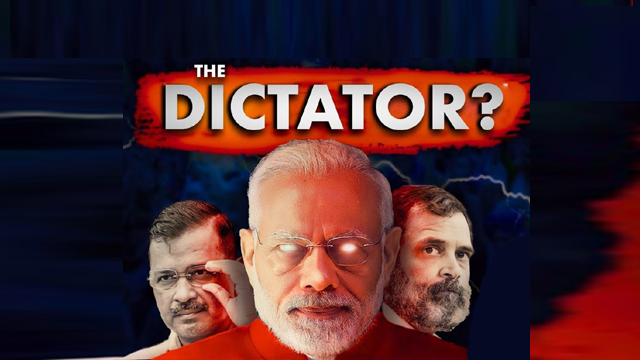Is India becoming a DICTATORSHIP?
Is India's Democracy at Risk? Exploring Concerns Amidst Chandigarh Elections, Farmer Protests, and More
Introduction:
In recent years, India has faced mounting scrutiny over the health of its democracy. While the country boasts regular elections and a vibrant political landscape, there are growing concerns that these democratic institutions are under threat. Beyond the mere act of voting, the essence of democracy lies in the protection of individual rights, the rule of law, and the functioning of independent institutions.

This article aims to delve into the various incidents and developments that have raised alarms about the state of democracy in India.
Is India Becoming a Dictatorship?
A recent video on YouTube provocatively raises the question: Is India on the path to dictatorship? The video challenges the conventional wisdom that democracy is alive and well in India simply because elections are held regularly. Instead, it urges viewers to look beyond the surface and examine the deeper trends and actions of those in power.
Incidents of Concern:
One of the key incidents highlighted in the video is the alleged election fraud during the Chandigarh Mayor elections. The CCTV footage captured irregularities that cast doubt on the integrity of the electoral process, leading to accusations of democracy being compromised.
Another area of concern is the perceived bias within the Election Commission. There have been allegations of favoritism towards the ruling party and failures to ensure free and fair elections. Such accusations undermine public trust in the electoral process and raise questions about the institution's independence.
Furthermore, the treatment of protesters, particularly farmers, has come under scrutiny. The use of force, including tear gas and rubber bullets, against peaceful demonstrators raises serious questions about the right to dissent and the government's response to legitimate grievances.
Understanding Democracy Beyond Elections:
It is essential to recognize that democracy encompasses more than just the act of voting. Drawing parallels with authoritarian regimes like North Korea and Russia, the video emphasizes the importance of free and fair elections, where all parties have an equal opportunity to compete.
Societal Issues and Democratic Values:
Beyond institutional concerns, societal norms and practices also play a significant role in shaping the democratic landscape. Discriminatory practices by Resident Welfare Organizations (RWOs) and other societal biases can infringe upon democratic values, undermining the principles of equality and justice.
Frequently Asked Questions:
- What defines a democracy?
Democracy entails more than just elections; it encompasses the protection of individual rights, the rule of law, and the functioning of independent institutions.
- Are elections enough to ensure democracy?
While elections are a fundamental aspect of democracy, they must be free and fair to truly reflect the will of the people.
- Why are incidents like the Chandigarh election fraud concerning?
Such incidents undermine the credibility of the electoral process and erode public trust in democratic institutions.
- What role does the Election Commission play in safeguarding democracy?
The Election Commission is tasked with ensuring free and fair elections and upholding democratic principles, but accusations of bias raise questions about its effectiveness.
- How do societal norms impact democracy?
Societal biases and discriminatory practices can undermine democratic values and hinder progress towards a more inclusive and equitable society.
Conclusion:
The concerns raised in the video and discussed in this article highlight the fragile state of democracy in India. It is incumbent upon citizens to remain vigilant and actively advocate for the preservation of democratic principles. Only through collective action and a commitment to upholding democratic values can India safeguard its democratic ethos and ensure a more just and equitable society for all.



This is true
ReplyDeleteWow, this post really opened my eyes to a new perspective! I love how you presented your ideas with such clarity and depth. It's refreshing to read content that challenges my thinking and encourages meaningful discussions.
ReplyDeleteI appreciate the research and effort you put into this post. Your thorough analysis not only educates but also sparks curiosity. I found myself delving deeper into the topic after reading your insights. Keep up the great work
ReplyDeleteIt's worrying to see signs of authoritarianism creeping into India's political landscape. As citizens, we must demand transparency and accountability from our leaders to safeguard our democratic rights.
ReplyDeleteThe rise of authoritarian tendencies in India is alarming. We cannot afford to overlook the erosion of democratic principles. It's crucial for citizens to actively participate in preserving democracy.
ReplyDeleteThe idea of India as a dictatorship is deeply concerning. Democracy is the cornerstone of our nation, and any threats to it must be addressed with urgency and resolve.
ReplyDeleteThe question of India becoming a dictatorship is a serious one. It's imperative for citizens to stand up for their rights and resist any attempts to undermine democratic institutions.
ReplyDeleteA dictatorship in India would be a betrayal of the sacrifices made by our forefathers to establish a democratic republic. Let's work together to defend our democratic values and institutions
ReplyDelete